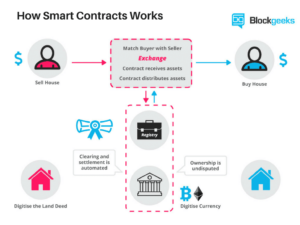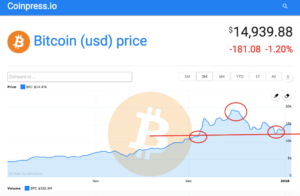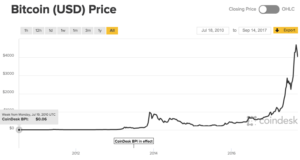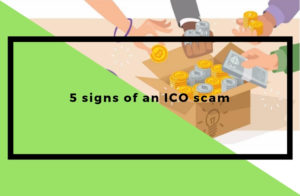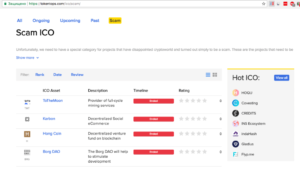
A popular misconception about the blockchain space is that it’s only about technology. I couldn’t disagree more. These systems start and end with humans. In the crypto ecosystem, we understand that, but our challenge is to make others who aren’t in this space recognize that this is far more than algorithms and cryptography.
Early on, we recognized that we needed to get a place at the table with government regulators, because otherwise we’d be on the outside looking in. We had to be part of that conversation to help educate them, because they have the power to stifle innovation and regulate us out of existence.
Thankfully, from what I’ve seen working closely with governments like Bermuda, Mauritius, Australia and groups like the G7, G20 and OECD – this is not what they’re aiming to do. It is quite the opposite. Here’s how governments are looking at blockchain and what the future will likely bring.
Data & Balance
No entity is more hyper-focused on how data is handled than a government body. The primary purpose of a government is to serve its people, and that’s why they create laws and regulations to enforce the handling, collection, and storage of data. But that process is imperfect.
Recent internet missteps have shown this. Take Cambridge Analytica or Facebook and government interaction as examples. This is why we’re building a data ecosystem for access, validation, and sharing, all the while looking to establish new privacy and security standards.
Our intent is to change the world for the better. We’re tackling that task by bridging the traditional world of governments and regulators with the emerging technology of the blockchain ecosystem. Data is the first step in this process.
Understanding Government Motivation
In the early days there were no regulations governing cryptocurrencies and blockchain-based solutions – and believe it or not, those were tough times because companies in our space had to navigate a minefield where governments tried to keep us in check with rules and regulations that weren’t necessarily applicable to our industry.
Today, there are still difficulties, but now that regulations are forming, the difficulties are different. So in order to ensure that the regulators would get it right, a few us (the grassroots players) fought to have a place at the table with the traditional world on behalf of our ecosystem.
Much to our delight, governments welcomed our input with open arms; but we didn’t expect it when countries admitted that they didn’t fully understand blockchain or the opportunities it presented. Even more encouraging, they expressed an eagerness to learn about it.
For the better part of this year we’ve been working with the G20 and its Financial Stability Board to ensure that conversations are focused on education and the principles of crypto and the blockchain ecosystem, and that they’re not subject to assumptions – because if we rely on assumptions, companies in our space won’t be here in five years and the innovations that can be built won’t see the light of day.
Massive Strides Forward
The OECD (Organisation for Economic Co-operation and Development) has built a legislative framework that’s being adopted by countries around the world. They recently held the OECD Blockchain Policy Forum with the intent of discussing blockchain and how it will impact our society, our economy, and our lives.
The OECD influences inter-nation financial operations and blacklists offending countries, even recommending sanctions – so it’s no surprise that governments want to ensure that new and emerging technologies aren’t being abused at the expense of their citizens. Every country has concerns that it will be the source of abuse and lose the ability to do business in the future. No one wants to be that weak link. That’s why governments are so keen to understand and embrace blockchain.
I expect that 13-15 countries will pass nearly universal legislation by the end of 2019; legislation that will provide clarity and define how we move forward in integrating blockchain technologies with the traditional world. In fact, we’re working with several forward-thinking countries on solutions. We’re working with the Government of Mauritius, which will be using our network to provide better privacy and data services for companies entering the country, and we hope that the initiative will expand into wider use cases, not only for Mauritius but also across jurisdictions.
In Bermuda, we’ve been working on an identity system with the government in coordination with financial institutions, telecommunications providers, central registries of the government of Bermuda, and the Bermudan Department of National Security. In 2019 the first pilot of that system will be deployed for the whole country, and eventually expand into crypto companies landing in Bermuda.
We’ve also been working with the government of South Australia and recently announced a partnership between the government there and Data61 – a unit of the Commonwealth Scientific and Industrial Research Organisation (CSIRO) and the group that invented Wi-Fi. We’ll be working with them to help coordinate both identity and data services in their state and across jurisdictions.
All this positive activity is infectious. Governments don’t want to be on the receiving end of blacklists or economic sanctions; but even better, we’re seeing a deep interest in leadership – the need to be first past the post. This tells us that we’re on the right track. The 13-15 countries passing universal legislation? That should send a definitive message and unleash a snowball of global proportions as countries recognize the reality of the blockchain ecosystem: adopt or become marginalized.
Source: https://crypo.io/blog/future/Author: Joseph Weinberg is the CEO and Co-Founder, Paycase Financial Corp and Chairman of Shyft Network International. Passionate about advancing mass-adoption of crypto and blockchain, Joseph also acts as an OECD Advisor (the International Organization for Economic Cooperation and Development).
- &
- 2019
- access
- advisor
- Aiming
- algorithms
- All
- announced
- around
- Australia
- Bermuda
- blockchain
- blockchain technologies
- board
- body
- Building
- business
- cases
- ceo
- chairman
- challenge
- change
- Co-founder
- Companies
- Conversation
- conversations
- countries
- crypto
- Crypto ecosystem
- cryptocurrencies
- cryptography
- data
- day
- Development
- Early
- Economic
- economy
- ecosystem
- Education
- Expand
- financial
- Financial institutions
- First
- Forward
- Framework
- future
- G20
- Global
- Government
- Governments
- Group
- Handling
- here
- How
- HTTPS
- Humans
- Identity
- Impact
- industrial
- industry
- Initiative
- Innovation
- institutions
- intent
- interaction
- interest
- International
- Internet
- IT
- Laws
- Laws and regulations
- Leadership
- LEARN
- Legislation
- light
- LINK
- move
- national security
- net
- network
- open
- Operations
- opportunities
- order
- organization
- Partnership
- People
- pilot
- policy
- Popular
- power
- privacy
- Privacy and Security
- Reality
- regulations
- Regulators
- research
- rules
- Sanctions
- security
- Services
- Share
- So
- Society
- Solutions
- South
- Space
- Stability
- standards
- start
- State
- storage
- surprise
- system
- Systems
- Technologies
- Technology
- telecommunications
- tells
- The Initiative
- The Source
- the world
- track
- Universal
- us
- WHO
- Wi-fi
- world
- year
- years


